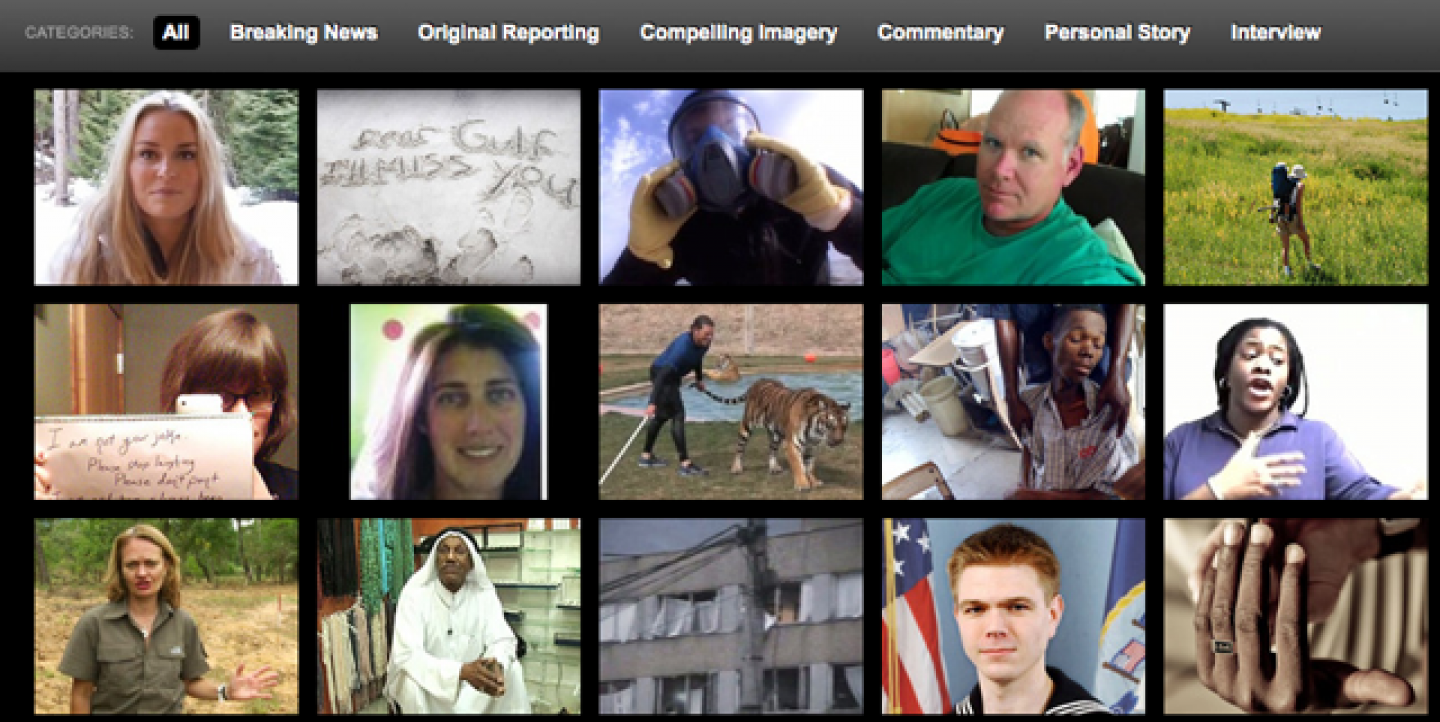CNN lauded the best videos from the 15,000 clips sent in 2011 to iReport, the network's citizen journalism project.
Out of that mountain of video on hurricanes, gardening and international politics a panel of outside judges voted on 36 stories in six categories in the second edition of the awards.
Citizen journalism awards have been around almost as long as citizen journalism as a way for news organizations to thank people for contributions that are often not otherwise paid for.
Here's why we think journalists should pay attention.
Citizen journalists are in it for the glory. CNN doesn't pay for the thousands of reports sent in from around the globe, and the winners for the top iReports receive trophies. In contrast to other contests - where there are prizes such as equipment or cash on offer - this is only about getting recognition for a job well done. And, if you're thinking it's a strategic career move, only a few of CNN's iReporters have been able to parlay working for free into a job so far.
Timing is everything. The breaking news winner was Jessica Silas, who saw the dust kick up and pointed her camera at the stage before it collapsed at the Indiana State fair. Judge Burt Herman voted for it because it's "chilling to see the panicked reactions after the stage collapsed and gives you a sense of being there and feeling the horror that the audience felt."
Personal stories matter. The "compelling imagery" and "commentary" awards both went to stories that have been in the news but were done with a personal take. The imagery award went to 14-year-old twins who went to check out the Occupy protests and Melissa Fazli's "Ode to Borders" zeroed in the meaning of the closing of bookstore chain for one mother and her community.
CNN launched iReport in 2006 as a way to involve citizens in the newsgathering process.


